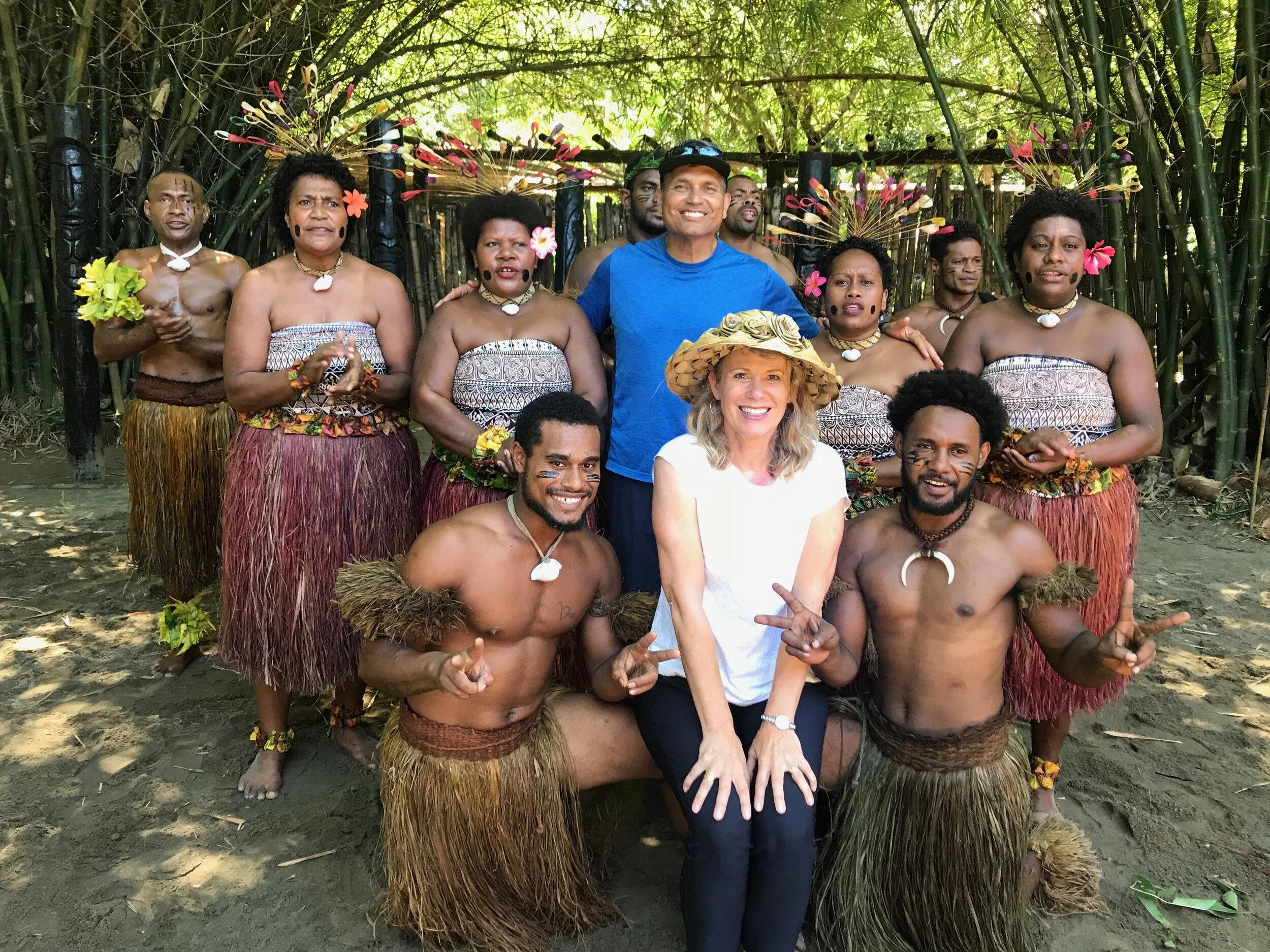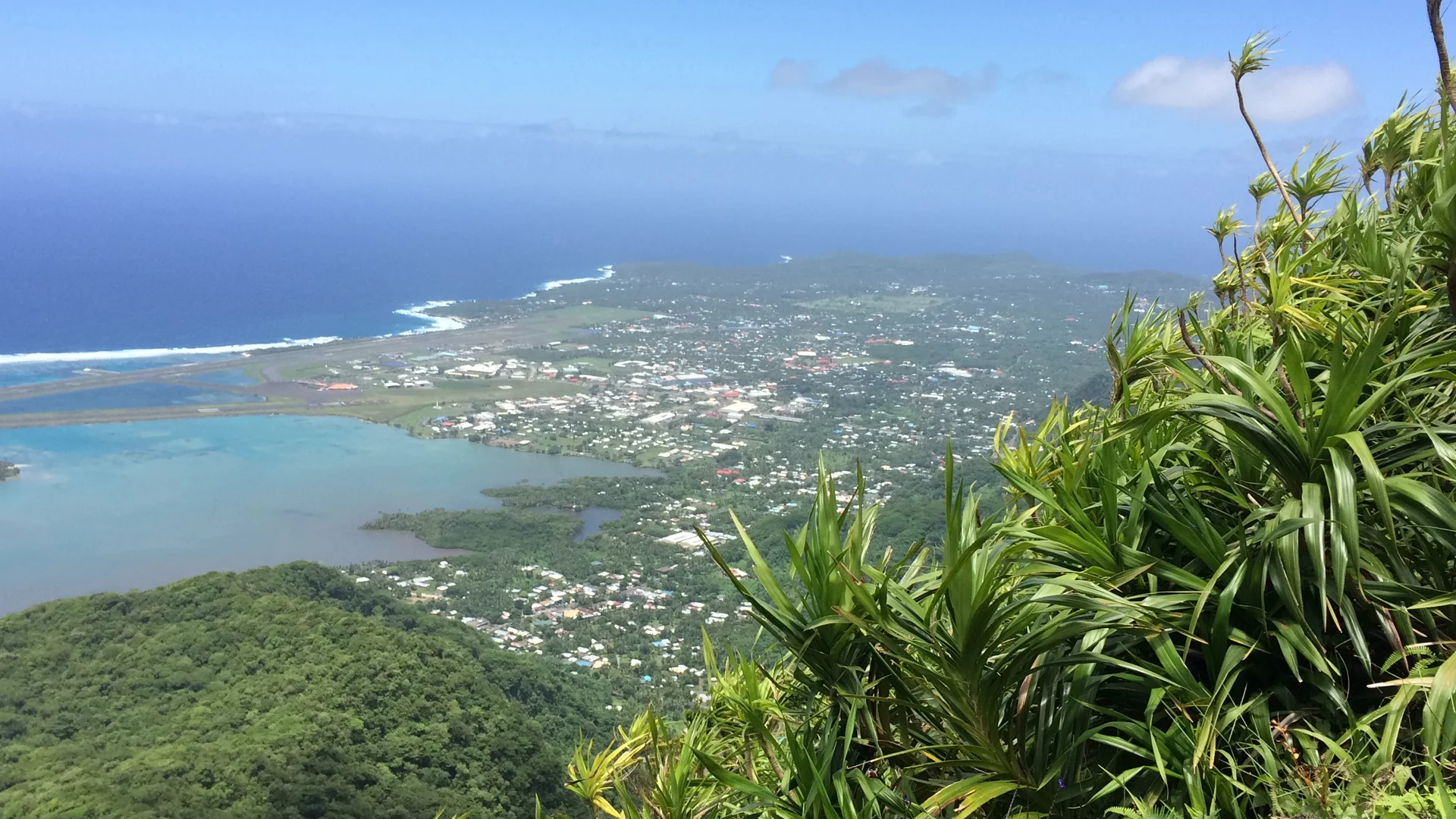“Susiana and the Islanders” would have never made it to Southern California without the great faith of this man, Luteru Afualo. He was born on the largest Samoan island of Savaii in the early 1900’s. Someone encouraged Luteru to go to the island of Upolu to attend the LDS Church school in Sauniatu. While there he met Siasaga Naea, who told him she wouldn’t marry him if he wasn’t a member of the LDS church. He promptly converted. After finishing school, they were called on a lifelong mission for the church. Luteru would travel to small villages, and ask the chief of the village if they could start a church there. The chief would give them a small plot of jungle land to farm. They would clear the dense vegetation and build a fale, or grass shack, and farm the land by day, and do missionary work by night. Once the church was established in a village, they would move on to a new village and start over again. Susiana remembers that they would put all of their belongings on handwoven mats and the family would carry or drag the mats to their new land in a new village.
Luteru and Siasaga had 10 children, 8 of whom grew to adulthood. All of the children were born in different villages on two different Samoan islands. They all have interesting names that have to do with their parents’ faith.
Opapo--Born in Sauniatu, Western Samoa, named after the man who converted Luteru, Opapo Fonoimoana.
Elesiva--Also, born in Sauniatu, called Siva--appropriate for her lively personality. Siva means dance.
Pago Pago--Born in Pago Pago, American Samoa, where the family moved to proselyte.
Uatisone--(Pronounced Watasony) Born in Tula, American Samoa, the first of the boys to be named after an American missionary, Elder Watson.
Laile--Born in Sauniatu, Samoa, the headquarters of the church in Samoa. Named after a church leader named Lyle.
Susiana--Born in Lauli'i, Western Samoa. Susiana is not a traditional Samoan name, but the Samoan version of Susan or Suzann, possibly the name of an American church leader’s child.
Penina--Born in Eva, Western Samoa. Named after her beloved older sister who had recently passed away.
Panesi--Born in Mesepa, American Samoa. Named after an Elder Barnes. Panesi means barn.
The boys all learned to work hard by fishing and farming. Susiana’s job was to go to the villages to sell the fish and produce. She learned to be a very good salesman as a young child, because she would get in trouble (sa sa) if she came home with unsold items. Things were different back then.
The children didn’t have toys other than a cricket bat and ball. Susiana said that some of the activities that the children enjoyed were singing, dancing, and spinning a stick like a fire-knife dancer. (She is the one who taught her son, Maril, the basics of firedancing at the age of 5 years old. Who would have ever guessed he would use that skill almost every weekend for the next 50 years?) Susiana’s mother had learned to play a pump organ in the 1920’s at the LDS school in Sauniatu, and she taught all of her children to play. All of the kids remember that she had a metronome, and if they missed a beat during their lessons, they would get rapped on the knuckles with a ruler. The family was well-known for their musical talents.
Luteru's wife, Siasaga, died of TB after her youngest son was born. Luteru wanted his family to go the Mormon temple in Laia, Hawaii, so the family came up with a plan. First Pago got accepted into a military school in Hawaii--which was still not a state--just an American Territory. Then the other boys, Opapo, Uatesone, and Laile joined the military to allow them to immigrate to Hawaii as well. Once they were there, then Luteru was able to come and one by one, the other children were able to join them--Elesiva, Susiana, Penina, and little Panesi.
Luteru’s mission then changed to that of a labor missionary, where he worked to build the LDS Church College of Hawaii in Laia, now BYU-Hawaii. While in Laia, the handsome Afualo brothers were well known for their singing talent, often singing songs by the Lettermen, with beautiful harmony. While in Hawaii Susiana observed that entertainment didn’t have to be just for fun--it could be a viable business.
All of the children soon migrated to the US mainland, and by the time Susiana was 25, she was dancing at luaus in California. Before she was 30, she started “Susiana and the Islanders”, now known as “Islanders Luau”. She enlisted many of her siblings into the first Islanders band. Sone on bass guitar, Panesi on lead guitar, Peni on ukulele and tamborine, and Susiana on ukulele. Panesi was the lead singer and all of the siblings sang backup and an occasional solo.
Luteru passed away in Laia, HI in 1960 on the day that he was released from his lifelong church mission. He was walking with his son, Sone, when he peacefully collapsed with his missionary release papers still in his hand. All of the children and grandchildren enjoy the faithful legacy of Luteru and Siasaga, who richly blessed their posterity.
*Side note: If anyone knows of any LDS missionaries who served in Samoa from 1930 to 1950, who have photographs of their missions, please let us know! We don’t have any pictures of Luteru’s wife, Susiana’s mother, Siasaga Naea. We know she must be in a lot of photos that American missionaries took, back in the day. Also, if anyone knows of any corrections or additions to this blog, please comment!
We only know of three photos of Luteru. This first one is from the Church College of Hawaii’s Yearbook in the 1950s. The second one is at a wedding in 1958, with 4 of his children--Opapo, Pago, Susiana, and Panesi, and the next picture must have been taken in Hawaii. He is holding a traditional Samoan fan. The last picture is of his grave which his great-granddaughter tends to weekly, in Laie, HI.







